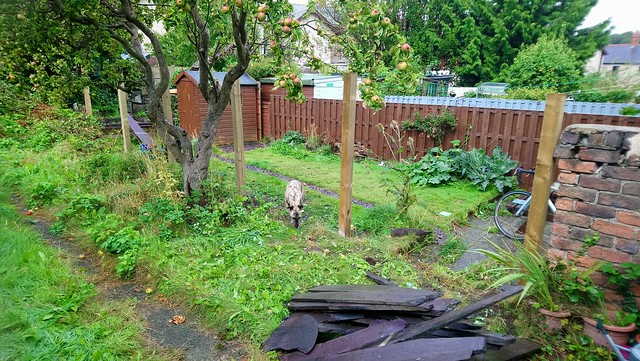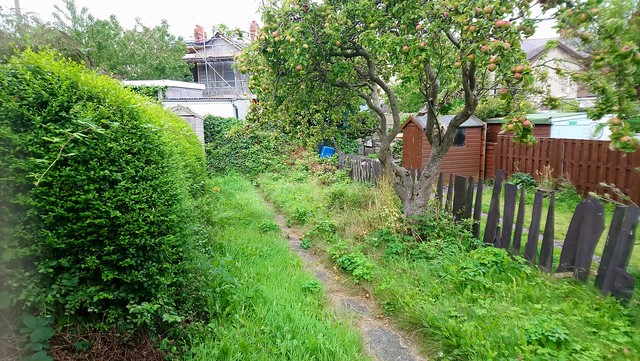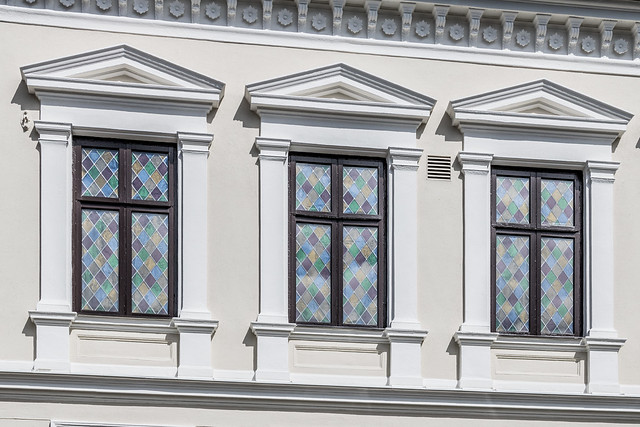Podcast: Play in new window | Download
As quite a bit of wet stuff has been falling out of the sky this week, and it’s raining as I write this, I thought I’d look into the the origins of the word rain [ɹeɪn].

Definition:
- condensed water falling from a cloud
- any matter moving or falling, usually through air
[source]
It comes from the Middle English reyn/rein [rɛi̯n/reːn] (rain), from the Old English reġn [rejn] (rain), from the Proto-West Germanic *regn [rejn] (rain), from the Proto-Germanic *regną (rain), possibly from the PIE *Hreǵ- (to flow) [source], or from *reg- (to water, moisture, wetness) [source]
Words for rain in other Germanic languages come from the same Proto-Germanic root, including regen [ˈreɣə(n)] in Dutch, Regen [ˈʁeː.ɡŋ̍] in German, and regn in Danish, Swedish, Norwegian, Faroese and Icelandic, with different pronunciations in each language [source].
The English word irrigate comes from the same PIE root, via the Latin irrigare (to irrigate), from irrigō (I water, irrigate, flood), from in- (after) and rigō (I wet, moisten, water) [source].
Here’s a video I made of this information:
Here’s a song I wrote about rain:
A slightly different version can be heard at:
I also write about etymology, and other language-related topics, on the Omniglot Blog.
You can also listen to this podcast on: Apple Podcasts, Stitcher, TuneIn, Podchaser, PlayerFM or podtail.
If you would like to support this podcast, you can make a donation via PayPal or Patreon, or contribute to Omniglot in other ways.









